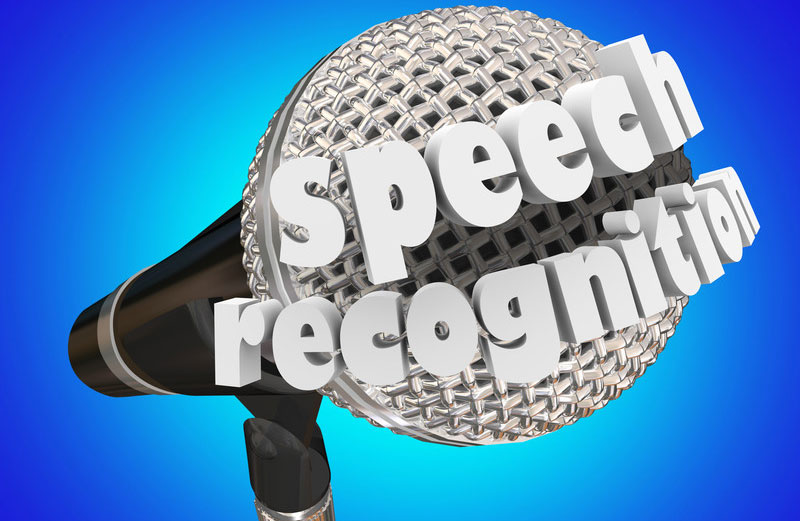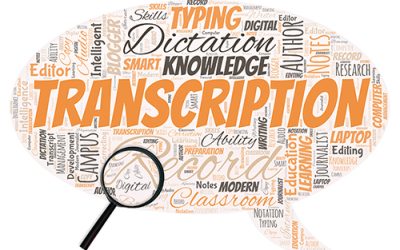Present day lawyers need more flexibility and efficiency in their working patterns – they need agility, mobility, nimbleness and the ability to practice law effectively and cost-efficiently from any location. Many lawyers use the dictation – transcription model to prepare legal documentation and find the services of a legal transcription company immensely helpful. Accurate transcription of legal proceedings enables current case scrutiny, future reference and also helps in training and educating legal professionals.

For lawyers, efficiency is important in their busy work life and technology plays a significant role in helping them efficiently navigate their work schedule. For lawyers looking for more ease and efficiency as well as promptness of documentation, speech-to-text tools are now available. Speech to text dictation is becoming one of the popular solutions for lawyers that lets them record notes on their computer, phone or other mobile devices and transcribe them using specific software. This helps lawyers save time and acts as an efficiency driver. There are many speech-to-text dictation options that helps lawyers to be more productive. Speech recognition (SR) software applications has been at the forefront of AI (artificial intelligence) developments in modern law practices, and many new entrants have come into this field after Google and Microsoft made their entries with dictation and SR apps. The most significant features of voice-to-text software are speed and accuracy. Once users master the program, they can dictate documents faster.
Speech-to-text software applications are available for Windows versions as well as Mac OS X or Linux. These recognize your voice and transcribe your speech into text. A good program would also allow users to edit and format (basic formatting such as bolding, underlining, etc) the documents. Some programs even have spell-check feature.
Dragon software is among the most popular tools available in the market and their products are compatible with a companion smartphone dictation app. Apart from working with your computer and operating system, popular dictation software would also work with your preferred software such as Notepad, iTunes etc. They also work with MS-Word, Excel, PowerPoint, Adobe Acrobat, native Apple software and even email programs such as Outlook.
- For Apple users: Two options are available, the digital dictation tool built into iOS devices or digital dictation capabilities available on most Mac Computers. These tools allow lawyers to dictate on mobile devices/laptop/computer. The dictations are sent to cloud servers to be converted and within a few minutes, you receive the transcribed text on your device. If you are using a mobile device, you can input only a certain amount of text at a time, for about 20 seconds and then you have to restart the process. Macs have no such limitations. Macs also let speech processing locally on your device and so you can dictate even when you are offline.
- For Android users: Android devices enable speech-to-text transcription. Voice recordings are sent to a cloud server and converted into text.
What are some of the best speech-to-text software tools available? - Dragon Naturally Speaking: Popularly acclaimed as the best overall dictation and voice recognition software. It provides a wide range of features, is reliable and accurate. It supports 7 languages – English, Dutch, French, German, Italian, Japanese, and Spanish. Its mobile apps support an additional 24 languages. In addition to accurately transcribing your voice to text, it allows you to use voice commands to control other software, navigate the internet and input text into websites via your web browser. Voice controlled shortcuts can be created for frequently executed tasks.
- Google Docs Voice Typing: Web-based dictation tool for Google Docs. It is integrated with the Google Suite of productivity applications. It supports 43 different languages. Voice commands such as text selecting/formatting are supported only in English. It transcribes your voice into text and also lets you select text, edit the formatting, and cut/copy and paste it around in your document via voice commands. It also understands the context of your speech.
- Siri: Ideal software for iOS mobile devices. It comes pre-installed and is fully integrated within the iOS operating system. Siri supports 21 different languages, including English, French, Spanish, Cantonese, Mandarin, German, Italian, and Japanese. It can transcribe your voice into text and perform many functions based on your voice commands. It can understand the relationship and context of your command/question and answer in a voice of its own. Siri can compose emails for you, read text messages, set an alarm, get directions, and even make a dinner reservation. Its offline transcription functionality is limited.
- Google Now: Ideal for Android mobile devices. It supports 43 different languages but voice commands are supported only in English. It is available for free within the Google app. Fully integrated with the Android operating system, Google Now can be used to perform almost any function in addition to transcribing your voice to text. You can use simple voice commands for making and receiving phone calls, composing emails, browsing the internet, sending text messages, and opening and closing apps. Now, Google Now works on iOS devices also but only within the Google app, and only for its main search functionality and to transcribe your dictations in a new Google Keep note.
- Cortana: Is a great option for Windows devices. It is an AI hands-free assistant that is include with all Windows phones as well as the Windows 10 operating system for computers. Cortana versions are available for Android and iOS phones as well. Cortana can compose and send text messages, update your calendar, play music, and check weather among other functionalities. It can also transcribe your voice into text and save it as a new note in OneNote which you can access at your convenience.
Although these tools are very user friendly, they may not be 100 percent accurate, and the transcripts may have some errors that need to be scrutinized. Some lawyers are also concerned about the security or chances of renouncing the client privilege when using these tools.
Is Using Speech to Text Dictation Ethical?
Using speech to text dictation is accepted in many jurisdictions because the tools like Dragon Dictation or Enhanced Dictation store texts locally. But when voice data is sent to a cloud server, then the question arises whether it is ethical.
Cloud servers are similar to third party servers like email where lawyers and clients exchange critical data. In the 1990s use of emails was accepted to discuss and share confidential data. The processing of speech by cloud server is analogous to the process that occurs when Gmail’s servers scan your emails in order to provide relevant ads. This practice was accepted by the New York State bar Association in 2008 when The Committee on Professional Ethics said that the data was processed by machine and it was ethically permissible. This shows that use of speech to text dictation is ethical.
However, the speech to text dictation may not ensure complete accuracy, and accuracy of legal transcripts is the path to success. So a better option for lawyers who are planning to transcribe their audio recordings may be to approach a professional legal transcription service or online transcription service that can offer high quality output at affordable rates. These services have multiple transcribers who can provide customized services according to the requirements of the clients and also ensure quick turnaround time.



